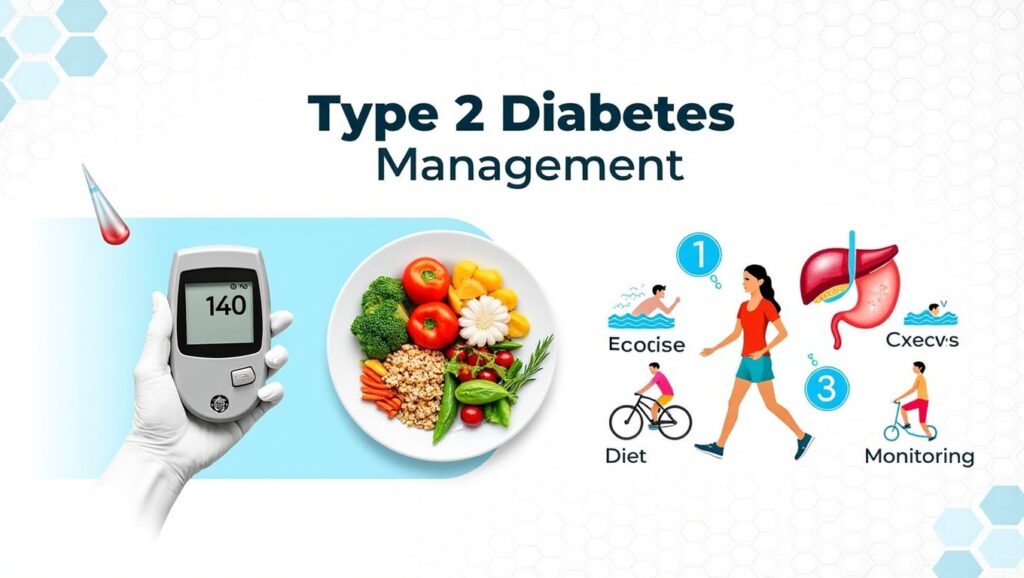Type 2 diabetes, a chronic condition affecting millions worldwide, is a complex metabolic disorder characterized by elevated blood sugar levels. Unlike Type 1 diabetes, where the body fails to produce insulin, in Type 2, the body either resists insulin or doesn’t use it effectively. Understanding the nuances of this disease is vital, as it presents numerous health risks when not properly managed. Research highlights that effective prevention and treatment strategies are essential for better quality of life for those affected.

What is Type 2 Diabetes?
Type 2 diabetes occurs when the body becomes resistant to insulin, a hormone that helps control blood sugar levels. The pancreas initially compensates by producing more insulin, but over time, it can’t keep up with the body’s demands. As a result, blood sugar levels rise, leading to hyperglycemia. This condition can lead to various complications such as heart disease, nerve damage, and kidney failure if left untreated. According to the Centers for Disease Control and Prevention (CDC), Type 2 diabetes accounts for 90-95% of all diabetes cases in the U.S.
The Role of Insulin in Diabetes Mellitus
Insulin plays a crucial role in regulating blood sugar. In a healthy individual, insulin helps glucose enter cells for energy. However, in those with Type 2 diabetes, the insulin response is impaired, causing glucose to accumulate in the bloodstream. Researchers at major institutions such as the Mayo Clinic have shown that insulin resistance can be exacerbated by lifestyle factors such as poor diet and physical inactivity. This understanding underscores the importance of early detection and lifestyle modifications in managing the disease.
Risk Factors and Prevalence of Type 2 Diabetes
While anyone can develop Type 2 diabetes, certain factors significantly increase the risk. Age, family history, obesity, and ethnicity all contribute to the likelihood of developing the disease. Studies have shown that people with a family history of diabetes are more likely to develop the condition themselves. Moreover, individuals with excess body weight are at an elevated risk due to increased fat deposits, which can interfere with insulin function. The growing prevalence of Type 2 diabetes highlights the need for public health initiatives to address these risk factors.
Recent Studies and Advances in Type 2 Diabetes Research
Advancements in Type 2 diabetes research have provided valuable insights into managing and potentially reversing the condition. According to a study published in the Journal of Clinical Endocrinology & Metabolism, interventions such as weight loss surgery, specific dietary changes, and increased physical activity can significantly improve insulin sensitivity. Researchers at Harvard University have also pointed out that certain lifestyle interventions can delay the onset of Type 2 diabetes in high-risk individuals, underscoring the importance of prevention.
Practical Tips for Managing Type 2 Diabetes
Managing Type 2 diabetes requires a multi-faceted approach. The cornerstone of effective management lies in consistent monitoring of blood glucose levels. Adopting a balanced diet, rich in whole grains, lean proteins, and vegetables, is crucial. Regular physical activity, such as walking, swimming, or cycling, can also enhance insulin sensitivity. Furthermore, maintaining a healthy weight is key to reducing the strain on the body’s insulin response. While medication may be necessary, lifestyle changes often play the most significant role in improving outcomes for Type 2 diabetics.
A Healthy Future: Preventing and Managing Type 2 Diabetes
Preventing Type 2 diabetes should be a priority, especially considering its long-term health implications. Regular check-ups and screenings for at-risk individuals can help detect early signs of insulin resistance. In addition to lifestyle changes, new research suggests that supplements and natural remedies may offer additional support. For example, some studies suggest that compounds found in certain herbal remedies can support healthy blood sugar levels. If you’re looking to complement your health regimen, the Official Formula of Glucotrust has garnered attention for its potential to support balanced blood sugar levels. Remember to consult with a healthcare provider before incorporating any new supplement into your routine.

Conclusion: Taking Control of Your Health
In conclusion, Type 2 diabetes is a preventable and manageable condition. By understanding the disease, its risk factors, and the latest research, individuals can take proactive steps toward managing their health. Lifestyle changes, along with proper medical support, can improve quality of life and prevent complications associated with this chronic disease. By adopting healthier habits and making informed choices, you can effectively reduce the risks of Type 2 diabetes, leading to a brighter and healthier future.
See this interesting article about: Oropharyngeal Cancer: A Silent Threat with Increasing Prevalence


Pingback: Understanding Fats and Cholesterol: A Science-Backed Approach - stay healthy today